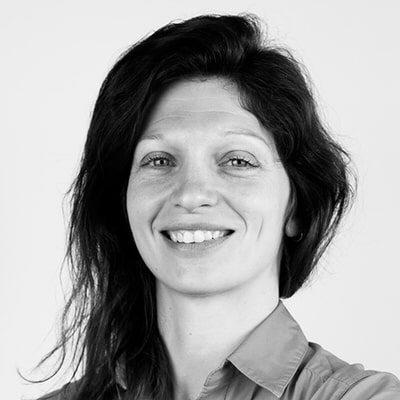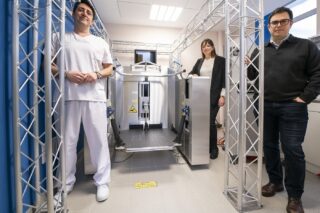Inventor of the first connected scales, Withings is launching new ranges of smart scales with innovative features such as neuropathy measurement or pulse wave velocity. According to the company, the vast amount of data collected for each individual patient through its scales in real-life conditions, very frequently and over long periods of time opens up an entirely new field of medicine. The consumer electronics company aims to position itself as an engaged player initiating a profound and necessary transformation in the world of healthcare, facing the “pandemic” represented by chronic diseases. We interviewed the president and co-founder of Withings, Eric Carreel. Here’s part II of this interview.
MedicalExpo e-magazine: Can you elaborate on the two concepts of motivation and discreet guardian angel?
Eric Carreel: In terms of personalized support, we aim to motivate individuals to change their daily behavior. This requires measurements that are extremely simple and create desire. That’s why the design of our devices is crucial to us, such as having long battery life and extremely easy installation systems. If we want to obtain real-life measurements over the course of years, we really need to focus on the consumer aspect.
This also requires algorithms capable of drawing conclusions from these measurements, calculating scores, and here, machine learning plays a crucial role. It’s no longer just an observation at a given moment, but an assessment of personalized progress over years, unique to each individual. This is completely new and will enable us to establish a connection with the patient.
In addition to this, we aim to be a guardian angel who can say, if and when necessary, that it’s time to see a doctor. It’s about being a discreet guardian angel who doesn’t promote hypochondria but rather encourages individuals to meet a healthcare professional at the right moment in their journey.


We want to introduce these measurements into people’s homes with great care and kindness, with the intention of supporting users and illuminating their path. In line with this mindset, we have introduced the “Eyes-Closed Mode,” which allows individuals to step on their scale without seeing their weight if it disturbs them, while still obtaining other information and alerts. It’s also in this spirit that we strive to anchor this profound transformation: promoting better health without stress or pressure.
MedicalExpo e-magazine: Is this abundance of data, collected through machine learning, the new element?
Eric Carreel: Having access to such a large amount of data, collected at high frequencies over an extended period of time for the same individual, is completely new. This longitudinal aspect of monitoring a person represents a significant breakthrough.
According to the medical researchers we collaborate with, for the first time in history, we have the ability to introduce personalized monitoring based on an individual’s baseline. This enables us to invent this new form of prevention we discussed earlier and help people make the most out of the years they have ahead, living a better life.
The good news is that when we intervene early enough, we can guide individuals back to a healthy state. For example, we have managed to support diabetics and help 30% of them move out of the category of chronic illness. It’s extraordinary.
MedicalExpo e-magazine: Can your scales be integrated into remote patient monitoring programs?
Eric Carreel: Yes, we have partnerships in the United States with pre-diabetes programs. During each employee’s annual medical visit, certain insurance providers and employers identify individuals at risk of pre-diabetes. The employer or insurance provider then offers them a free remote patient monitoring program, primarily focused on weight loss or weight management. As part of these programs, individuals receive our scales, watches, or blood pressure monitors.
Public insurance providers like Medicare (for the elderly) and Medicaid (for the underprivileged) have also been offering remote patient monitoring for several years. This means that a physician treating a chronically ill patient can receive reimbursement of around $70 per month if they obtain 16 measurements per month from the patient and spend at least 20 minutes per month reviewing their data.

To facilitate this, we launched Withings Remote Patient Monitoring, a platform that allows a medical entity to onboard physicians. Each physician can then onboard patients, explaining the specific health issues they are monitoring and providing them with the necessary devices (scales, blood pressure monitors, etc.) free of charge. The platform records patient addresses, and Withings takes care of logistics by shipping the products directly to the patients. At Withings, we also ensure that patients know how to use the products and handle the data feedback, which is sent to the physician’s dashboard.
To avoid overwhelming physicians with excessive data, we offer a dashboard with alert systems that we manage ourselves. We have orange alerts, for example, if a patient hasn’t taken their three weekly measurements for 15 days, and red alerts if a patient’s systolic pressure exceeds a predefined threshold. Physicians can simply review the orange and red alerts and see directly what they need to follow up on.
There is also a system of exchange and messaging with the patients. In addition to this, our platform handles all the reimbursement for the physicians, ensuring they receive their monthly payment of $70 per patient through a billing system. We manage all this complexity so that the physician can focus solely on taking care of their patients. Currently, we have approximately 4,000 patients being monitored in this way.
MedicalExpo e-magazine: Is Withings planning a transition from B2C to B2B?
Eric Carreel: Currently, about 85% of our revenue comes from B2C and 15% from B2B. Both segments are expected to experience rapid growth, but the B2B aspect even more so due to the changes needed in the healthcare system.
There is a need for acceleration in this sector. Americans believe that it is more important to focus on the insurance industry than the medical field to achieve this, as the medical field is currently overwhelmed and doesn’t have the time to address this issue.
Insurance providers are starting to make moves, and patients are demanding it, but there is still work to be done on the side of the medical community.











